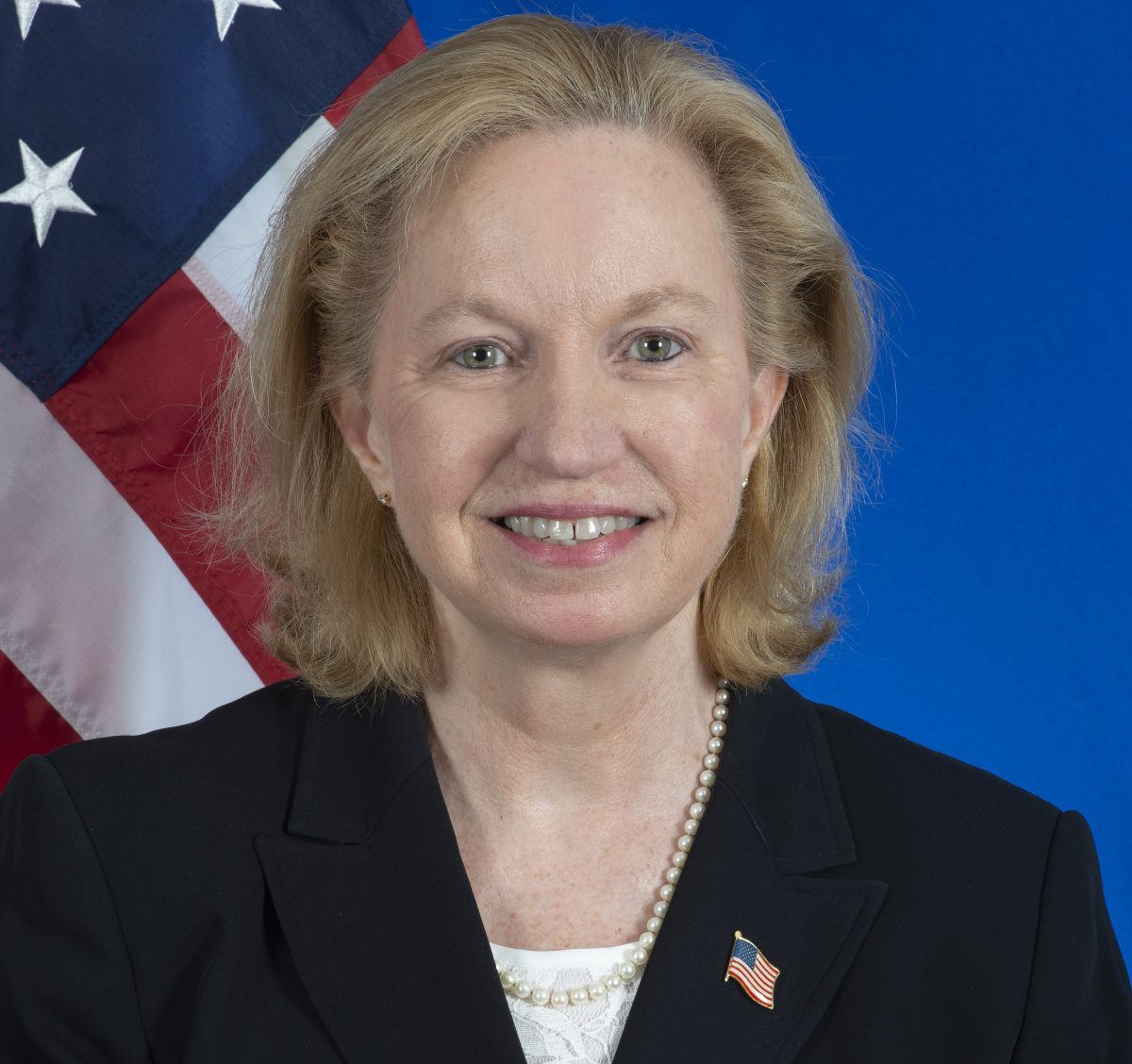Two days after United States Ambassador to Guyana Sarah-Ann Lynch contended that the push here for local content provisions may make foreign investors feel unwelcome, the Georgetown Chamber of Commerce and Industry (GCCI) is crafting a response.
“We are currently discussing the matter internally. In fact we spent all day discussing but do not have a position at this time. We have not arrived at position but when we do it will be made public,” former GCCI head Deodat Indar told Stabroek News yesterday.
Last week Indar had declared that a strong local content policy was essential to the development of Guyana’s oil and gas sector.
Speaking as part of a panel review of the third draft of the policy at the Duke Lodge he argued that Guyana focusses too much on playing by every rule for market and trade to the detriment of its people. He said that while Guyana is the most liberal at upholding the CARICOM trade principles, the very countries we facilitate are hostile to us but take up jobs here.
“Guyanese always go as if you have to adhere to the Treaty of Chaguaramas to the ‘T’ or you going to hell. Well damn that! I’m sorry to say that, because if I go to Trinidad, I can’t go and set up my business, and I can’t do what they coming [to do here]. If I go to Barbados or the US, or any other country, you can’t go and do the things we see happening here. Somebody needs to stand up and move out the politics and move back all the grandstanding and call a spade a spade. It is just not right!” he said.
Indar’s position was supported by President of the American Chamber of Commerce Guyana Inc (AmCham Guyana) Zulfikar Ally who stressed that Guyanese will have to look at whether the objectives of the local content policy are supported by existing legislation, which was designed to support previous policy goals.
“I think we are all aware [that] Guyana has become an attractive destination for foreign companies. In the past, all efforts were made to attract these companies to Guyana with the provision of incentives, tax holidays and duty-free concessions. The country no longer has to be overly generous with this policy, but [has] to now ensure that the local private sector, Guyanese, especially the SMEs [small and medium-sized enterprises] also benefit from these concessions and duty-free [concessions] in order to build their capacity to enter this new sector,” he said.
Lynch however appeared to differ with Ally at the AmCham Annual General Meeting (AGM) on Saturday when she said that recent suggestions of a local content policy in Guyana may send a signal that some investors as well as the employment and know-how benefits they bring may not be welcome here.
In her address, Ambassador Lynch sought to remind AmCham of its mission, which includes creating a greater appreciation of the value of a more liberal investment of substance and self on behalf of the interests of competitive businesses.
In keeping with its mission, the Ambassador asked that AmCham ponder its leadership role in pursuing a strengthened investment and trade relationship with the United States in support of a shared vision of sustainable prosperity for Guyana. “As in most policy matters, such a vision requires that we avoid undermining our own objectives,” she stressed before raising concerns about the local content advocacy.
According to the Ambassador, the emphasis should be not on who owns a firm but on whether the firm, be it local or international, is following international best practices on critical matters, such as financial transparency, environmental protection and is otherwise acting in a manner that contributes directly to Guyana’s overall sustainable prosperity.
Meanwhile, Chairman of the Private Sector Commission (PSC) Gerry Gouviea told Stabroek News yesterday that in his experience foreign investors are never turned away by requirements to include locals unless these local companies are unqualified.
“All foreign investors I’ve worked with are looking for credible local companies to work with because it makes it easier for them. I don’t subscribe to the opinion that it will push people away. Foreign companies are excited to work with local companies and it is part of the corporate social responsibility strategy as they venture out into a foreign country to give back to those countries and to work with local companies,” he explained. Gouviea however cautioned that Guyana’s private sector needs to ramp up efforts to meet the challenge on the demand for local content.
“We have to upgrade our services, our standards [and] our accreditation as we start to prepare ourselves. We can’t force foreign companies to work with local companies that don’t meet the standard,” he advised.
Critics have argued that the APNU+AFC government has been tardy with local content legislation considering that first oil was discovered in May 2015. The critics say that many of ExxonMobil’s tier one contractors have already set up operations here without any extant law on local content in terms of jobs, purchases of goods and services and training to ensure more locals are hired in the long term. The critics also point out that with the political stalemate in the country at present, the required legislation is unlikely to be passed in Parliament before general elections are held.







